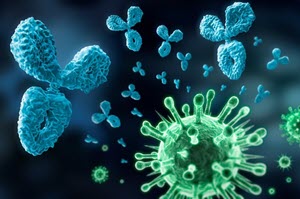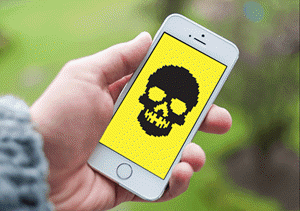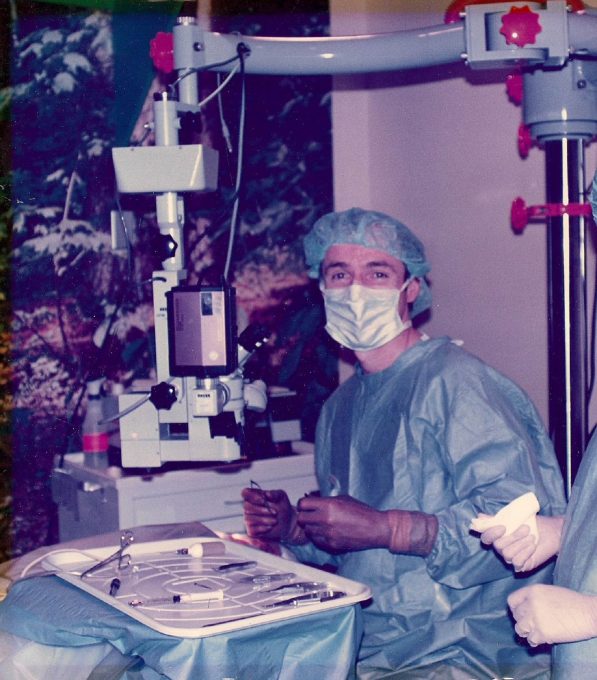Covid vaccines

A group of researches from UCLA reported this week in the New England Journal of Medicine that antibody levels fall quickly after a Covid-19 infection. Their results were similar to those from a study in China. The UCLA group looked at 30 patients diagnosed with Covid-19 and four housemates who probably had the disease. The average age was 43 years old.
The researchers measured the blood level of protective antibodies (Covid 19 IgG antibodies) on average 37 days after the onset of symptoms and again 86 days after onset. Using a linear regression model, they concluded that the half life was 73 days.
That means that the concentration of antibodies in the blood falls by half in 73 days, and theoretically by half again 73 days later. The assumption is that it continues to halve every 73 days, and at some point, it falls below the level needed to prevent re-infection.
The immunity from a vaccine will likely fall quickly

This reduction has implications for the immunity provided from a vaccine. Until there is evidence to the contrary, researches will assume that the half life of those antibodies will be around 73 days as well.
No one yet knows what percent of the original antibody level is needed to prevent infection. However, the vaccine producers are hoping that the average antibody level after a vaccine will be at least twice that of that after an infection.
Also, remember, researchers expect rapid decay because that it typical of the immunity after other coronavirus infections. That is why they are planning to give patients a booster shot from 1 – 3 months after the 1st vaccine. Furthermore, researchers suspect that we might need an annual booster shot. They might be able to include it in the annual flu shot.
There is another important point. The immunity is more complex than just antibodies. A type of white blood cell makes the antibody (B lymphocyte). Once it knows how, it will be quick to make more if a person is exposed again to the coronavirus. That means that a 2nd infection will probably be less severe and end faster.
Another type of white blood cell called a T lymphocyte attacks the virus directly in addition to the antibody disabling the virus particles. There will be memory there as well and scientists expect a faster production of protective T cells if a person gets infected again.
Dr. Fauci says you will not get vaccinated until the spring
Here are some of Dr. Fauci’s comments from Friday:
“It is likely that at the beginning of next year we would have tens of millions of doses available,”
“I think as we get into 2021, several months in, that you would have vaccines that would be widely available.”
“Since we are only six months into it, we don’t know how long [antibodies] last in most of the people. But the fact is … that there are some people where antibodies only last a short period of time. We need to know what that means.”
“Again, we are learning as the weeks and months go by, but we don’t have all the information that we need.”
Comparing the iPhone to the vaccine

The current release of the iPhone is iPhone 12. While the 1st iPhone from long ago was good, every new release has been better.
I have written many times that when experts talk about a vaccine, they never say the 1st generation will be the last. It won’t be the iPhone 12 of vaccines. The CDC knows this. We should expect much safer and more effective vaccines several years from now.
But won’t the pandemic be over? Yes, but the virus will be here for many years and possibly forever. We might need an annual shot, just like with the flu. Some people still get measles and smallpox even though the pandemics were long ago.
With so many people suffering or dying, everyone is eager to get something out. The CDC has therefore lowered its standards. They are willing to approve a vaccine that is only 50% effective. That means it will not significantly help half of the people who get it. Those people will have essentially the same risk of Covid-19 as someone who did not get vaccinated.
The 1st vaccine will be less effective and less safe than we want
A more important point that the medical experts are avoiding is that the CDC will also compromise on safety. If a million people get a vaccine and no one has a serious complication in 10 years, most people would conclude that the vaccine was safe.
Suppose that most people in the test group of only 30,000 had no serious complication 2 months after being vaccinated. Far fewer of us will be confident that the vaccine is safe. Our fear is that some complications might be very serious but not develop until 3 months or a year or more after getting vaccinated. Or, that some serious complications only develop in 1 in 50,000 people, and the 30,000 test group was too small to discover this.
But the CDC might be willing to vaccinate 300 million people after only 2 months of safety testing on a Phase 3 group of only about 30,000 patients. This is because they will believe that far more people will die if they do not use a less than perfect vaccine.
Don’t forget treatment
Treatment is not getting much coverage, but until there is a vaccine, it is all that we have. Doctors have shown that both dexamethasone and remdesivir reduce the death rate. Medical centers around the world are working to improve the survival rates of seriously infected people. Drug companies are also looking for effective treatments. This will result in a significant reduction in the death rate by the end of the year while we wait for vaccines to get approved.
This is going to be very important for Covid-19 patients even after the vaccine. A lot of people will refuse to get vaccinated, and many who do get vaccinated will not produce enough protective antibodies. Therefore, treatment will always be important, and it will become increasingly effective.
Look back at AIDS in the 1980’s. Everyone was dying. Now, it is still a terrible disease, but most people survive because of effective treatments.
Why will there be less flu this year?
I am unaware of any research on this but here is my thought. A significant number of people are wearing masks, washing hands, and socially distancing to prevent Covid-19. Well, guess what? Those behaviors should also reduce the number of flu infections this year.
I am an M.D. and here are my thoughts

I am a physician and I think that this is a risky decision. There will be serious complications that come a year or more later. However, if the problems with the vaccine are far less than those with the disease, the vaccine is still worthwhile.
Let’s say 1% of patients die from the disease, but only 1 in 100,000 die from the vaccine. Even though that is 1000 times better than the disease, a lot of Americans will be very mad. «You vaccinated my kids and my elderly parents without knowing if there would be serious complications 6 months later? How dare you!» Well, this is our future.
I will still get vaccinated. Furthermore, if possible, I will get vaccinated with several vaccines spaced over many month, each with a different mode of attack against the virus. Because of my age and some health issues, I have significantly more risk from Covid-19 than a 20 year old.
The CDC now says that patients only need to isolate for 10 days
The Center for Disease Control (the CDC) shortened its guidelines for isolation after a person gets infected with Covid-19. They reduced the isolation to 10 days from 14 days:
«For most persons with COVID-19 illness, isolation and precautions can generally be discontinued 10 days after symptom onset and resolution of fever for at least 24 hours, without the use of fever-reducing medications, and with improvement of other symptoms.
A limited number of persons with severe illness may produce replication-competent virus beyond 10 days that may warrant extending duration of isolation and precautions for up to 20 days after symptom onset; consider consultation with infection control experts.
For persons who never develop symptoms, isolation and other precautions can be discontinued 10 days after the date of their first positive RT-PCR test for SARS-CoV-2 RNA.«
Center for Disease Control (CDC)
Al Brooks’s earlier special report on the Covid-19 pandemic:

